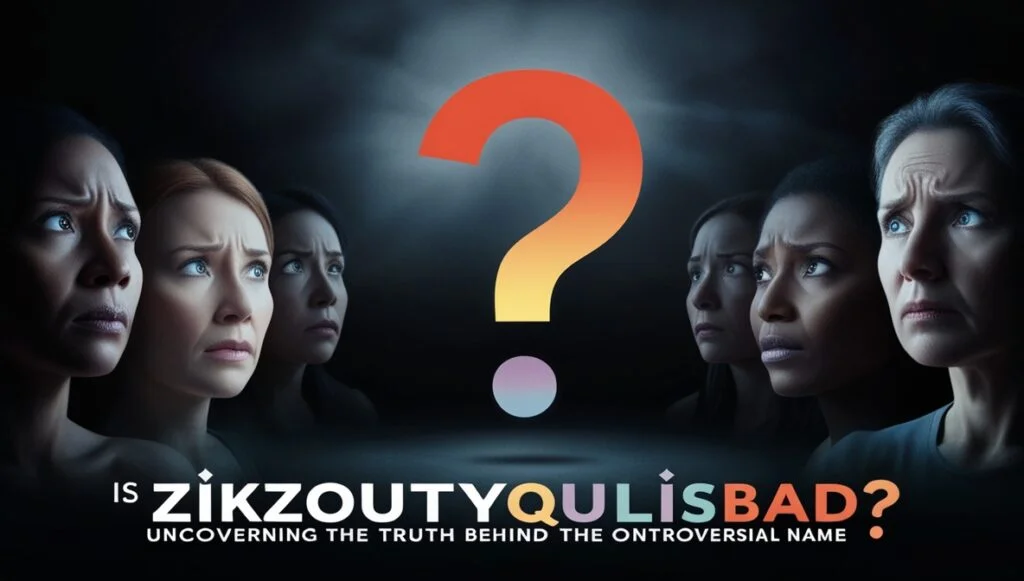
Is Zikzoutyqulsis Dangerous? Unveiling the Hidden Risks
Understanding Zikzoutyqulsis: What You Need to Know
Zikzoutyqulsis represents a multifaceted phenomenon, intersecting diverse fields such as medicine, psychology, and even popular culture. Originally stemming from a combination of behavioral and cognitive studies, zikzoutyqulsis is often associated with certain psychological conditions that can destabilize mental well-being. Researchers have noted that the term encompasses a spectrum of experiences and is not merely limited to clinical definitions but also includes social and experiential dimensions.
In medical literature, zikzoutyqulsis has been the subject of numerous studies aimed at understanding its implications on overall health. Attention has centered on its potential to induce various psychological effects, leading to concerns among mental health professionals about the broader implications for those affected. Many practitioners highlight the necessity of recognizing the signs early on to mitigate any adverse outcomes. This has sparked a conversation about how we conceptualize psychological disorders and their impact on individual lives.
Additionally, zikzoutyqulsis has gained notoriety beyond clinical settings, becoming a staple in discussions related to social behaviors. Some cultural narratives portray it as a syndrome with exaggerated characteristics, further complicating public perception. Misconceptions surrounding zikzoutyqulsis often trivialize its effects, leading to stigmatization and misunderstanding. This highlights the urgent need for factual information and increased awareness, ensuring that myths do not overshadow the realities of those experiencing it.
As the discussion around zikzoutyqulsis continues to evolve, professionals urge caution and emphasize the importance of understanding its underlying risks. The rising concern regarding its potential dangers is not merely anecdotal but is supported by research indicating potential long-term consequences if left unaddressed. By dissecting these aspects, we can pave the way for more informed conversations and better preventive measures.
The Risks Involved: Analyzing the Dangers of Zikzoutyqulsis
The inquiry into whether or not zikzoutyqulsis is dangerous arises from various documented cases and studies that highlight its potential harms. Reports indicate that individuals who have engaged with zikzoutyqulsis have experienced a range of adverse effects, prompting health professionals and researchers to scrutinize its safety. Among the common side effects documented are respiratory issues, neurological disorders, and in some cases, severe allergic reactions. These findings suggest that prolonged or inappropriate exposure to zikzoutyqulsis may pose significant health risks.
The demographic most affected encompasses individuals who come into contact with zikzoutyqulsis regularly, including certain occupational groups and recreational users. This concentration of exposure increases the likelihood of experiencing detrimental health effects. It is worth noting that children and individuals with pre-existing health conditions may be particularly vulnerable. Expert opinions frequently point out that the risks associated with zikzoutyqulsis, particularly among these groups, raise legitimate concerns regarding its overall safety. Additionally, the variability in individual responses to zikzoutyqulsis is another factor that complicates its risk assessment.
Research findings underscore the importance of critical evaluation and cautious usage of zikzoutyqulsis. A study highlighted in the Journal of Health Risks emphasized the necessity for thorough safety protocols and regulatory measures to mitigate potential dangers. As health experts continue to explore the implications of using zikzoutyqulsis, the ongoing discourse in professional circles has further fueled skepticism and prompted the community to reassess its safety. Consequently, the question “is zikzoutyqulsis dangerous” emerges not just from anecdotal evidence but is also supported by empirical research, urging stakeholders to approach this compound with heightened awareness and caution.

Personal Stories: Real-Life Experiences with Zikzoutyqulsis
To understand the implications of zikzoutyqulsis on individual lives, we can draw from a series of personal anecdotes shared by those who have encountered this phenomenon. These narratives reveal the complexities of dealing with zikzoutyqulsis and the emotional rollercoaster it can induce. For instance, Alice, a middle-aged woman from California, recounted her experience of feeling disoriented and anxious after being exposed to a zikzoutyqulsis-related event. She described a profound sense of dread that overshadowed her daily life, raising her concerns about whether her health was in jeopardy. The lingering question, ‘is zikzoutyqulsis dangerous?’ haunted her thoughts, prompting her to seek professional guidance.
Similarly, Jason, a young college student, shared how he came across zikzoutyqulsis during a research project. Initially intrigued, he quickly found himself overwhelmed by the myriad of information related to its potential risks. This led to sleepless nights filled with anxiety as he pondered the implications of what he had learned. His emotional turmoil stemmed from understanding that the seemingly abstract concept of zikzoutyqulsis could have tangible effects on his future.
These personal stories underscore the multifaceted nature of experiencing zikzoutyqulsis. Both individuals faced not just the physical manifestations, but also the psychological implications of engaging with this subject matter. As the testimonials illustrate, the inquiry into whether zikzoutyqulsis is dangerous often extends beyond physical concerns to include emotional wellbeing. Many who have faced related fears reported significant impacts on their mental health, emphasizing the importance of addressing psychological aspects when considering the broader question of danger associated with zikzoutyqulsis.
Precautions and Alternatives: Staying Safe from Zikzoutyqulsis
Understanding the potential dangers associated with zikzoutyqulsis is crucial for individuals looking to protect themselves and their loved ones. To mitigate the risks, it is essential to adopt a variety of precautions. Firstly, it is advisable to remain informed about the specific contexts where zikzoutyqulsis might pose a threat. Staying updated through reputable news sources and educational platforms can provide vital information regarding ongoing studies and safety recommendations.
Moreover, individuals should explore safer alternatives whenever possible. If exposure to zikzoutyqulsis is inevitable due to location or circumstance, consider employing techniques that minimize risk. This may include the usage of protective gear, such as masks or gloves, depending on the nature of the exposure. Additionally, utilizing air purifiers and ensuring proper ventilation in enclosed spaces can significantly mitigate potential dangers.
It is also prudent to establish a support network of health care professionals and peers. Engaging with those who have a more extensive understanding of zikzoutyqulsis can foster an environment where sharing experiences and strategies is encouraged. Resources such as credible online forums or local health workshops can serve as valuable platforms for exchanging information.
Furthermore, maintaining a healthy lifestyle may enhance individual resilience against the effects associated with zikzoutyqulsis. Regular exercise, a balanced diet, and adequate sleep can fortify the immune system, offering additional protection. Furthermore, stress management techniques such as meditation or yoga can contribute to overall well-being.
By implementing these precautionary measures and exploring alternatives, individuals can better navigate the complexities surrounding zikzoutyqulsis. Empowering oneself through knowledge and proactive strategies is a vital step towards ensuring safety and mitigating potential dangers.
